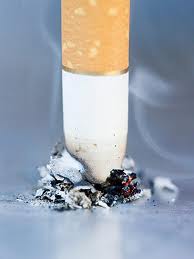Pulmonary Hypertension
Pulmonary Hypertension:
Pulmonary = respiratory system.
Hypertension = high blood pressure.
Smoking supplies particles of chemicals to the lungs every time a smoker drags on a cigarette and the fragile alveoli in the lungs struggle to perform when, after years of smoking, they are clogged with mucous.
Large quantities of airborne particles can overload the respiratory system and cause a variety of illnesses. Some of these include; lung cancer, bronchitis, emphysema and asthma and all of these lung diseases can contribute to pneumonia, pleurisy, pulmonary embolisms and pulmonary hypertension.
Every part of the human body receives blood which is circulated constantly carrying oxygen and nutrients to all the cells of the body and removing carbon dioxide.
We have an incredible network of arteries, veins and capillaries designed for the job. All the alveoli in our lungs have capillaries necessary for gas exchange so if there is damage or a blockage in one part of the lung the normal circulation of blood through the alveolar capillaries is prevented and this results in tissue damage.
If pulmonary embolism (blood clot in the lung) occurs causing long term tissue damage then pulmonary hypertension (raised blood pressure in the lungs) can result leading to pulmonary oedema (fluid retention in the lungs).
If there is raised blood pressure in the respiratory system this puts a strain on the whole body. Our lungs are responsible for taking in oxygen and getting rid of carbon dioxide so if the alveoli are not working efficiently because they are impeded by high pressure in the lungs eventually our whole system will suffer the effects.
If you suffer from a COPD (chronic obstructive pulmonary disease) such as emphysema the lungs do not expand and contract as easily as they did without the disease and this is when high blood pressure can occur in the respiratory system. It is just another reason to quit smoking!
Related Pages:
Reasons to Quit Smoking.
Emphysema.
Asthma.
COPD.
Return from "Pulmonary Hypertension" to "How to Quit Smoking"
If you are interested in purchasing my Kindle ebook from Amazon.com please click on the picture link below:
